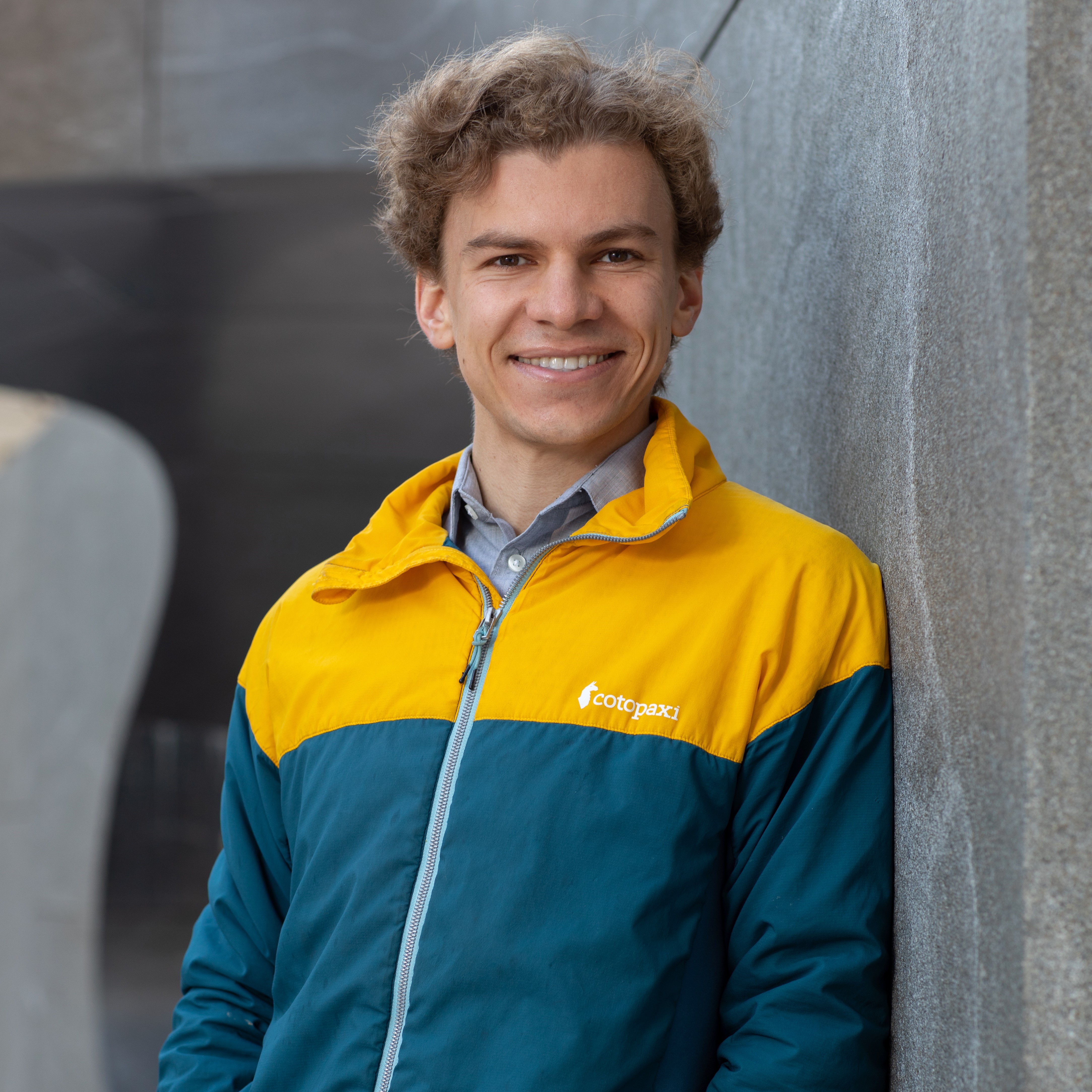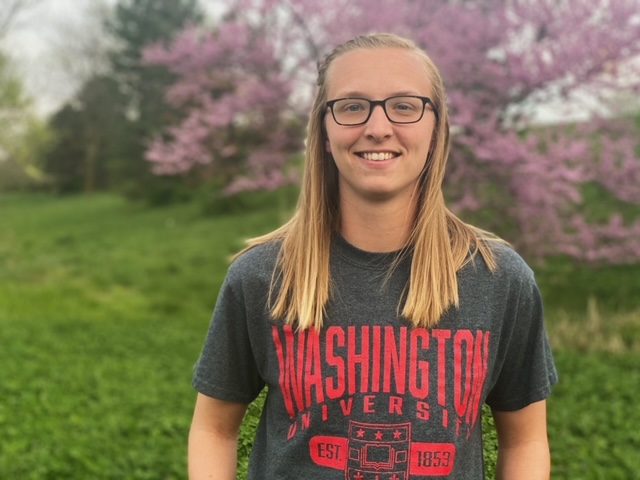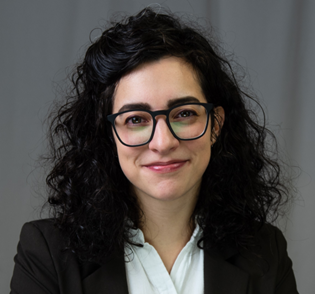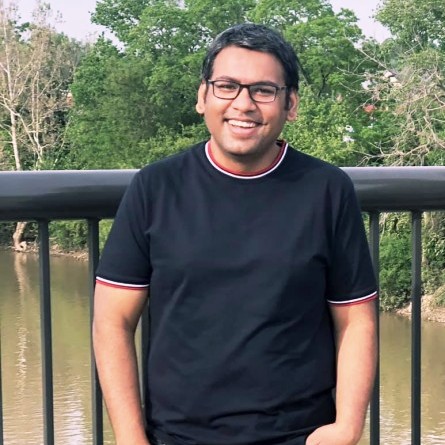Pauling Fellows Recipients
2025 Pauling Fellows
 | Rijul Chauhan earned his PhD in Nuclear Engineering from Texas A&M University in 2025 under the guidance of Dr. Lin Shao, following dual bachelor's degrees in Nuclear Engineering and Physics from Idaho State University in 2018. His doctoral research focused on developing high-throughput irradiation testing techniques to accelerate the qualification of nuclear materials for advanced reactor applications. At PNNL, Rijul is a member of the Reactor Materials Group in the Nuclear Sciences Division, working with Eda Aydogan and Stuart Maloy. His Linus Pauling Fellowship research centers on evaluating the irradiation resistance of functionally graded transition joints as a robust alternative to conventional dissimilar metal welds. By leveraging additive manufacturing, his work aims to enable smoother material transitions and mitigate failure risks in extreme environments. His broader research goals support the safe, efficient, and sustainable deployment of advanced nuclear energy technologies. |
 | Yang Shi received her PhD in Atmospheric Sciences from Texas A&M University and worked at Massachusetts Institute of Technology as a postdoctoral associate. She holds a BS from Nanjing University in China. Her research focuses on natural atmospheric aerosols – including dust, fire, biogenic secondary organic aerosols – and their responses to anthropogenic activities. At PNNL, Yang is a member of the Global Atmospheric Modeling group in the Atmospheric, Climate, and Earth Science Division. She will work with Po-Lun Ma to investigate the influence of atmospheric iron deposition on oceanic sulfur emissions using Earth System Models. |
2024 Pauling Fellows
 | Xinchang “Cathy” Li received her PhD in Civil Engineering at University of Illinois Urbana-Champaign (UIUC) under the guidance of Prof. Lei Zhao. Her dissertation focused on the mechanisms, effects, and modeling of the interactions between the urban environment and energy use across global to local scales. She combines theory, Earth system modeling, and artificial intelligence/machine learning methods to inform stakeholders on developing sustainable urban energy pathways. She is the recipient of the Engelbrecht Fellowship at UIUC and the Andrew Slater Award from NSF National Center for Atmospheric Research (NCAR). At PNNL, Cathy is a member of the Regional and Cloud Modeling Group in the Atmospheric, Climate, and Earth Science Division, working with Casey Burleyson, TC Chakraborty, and Yun Qian. Her current work aims to elucidate the interacting effects of urban building electrification and city-integrated solar energy on urban heat and cold extremes. |
 | Peter Lalor completed his PhD in computational nuclear science and engineering at Massachusetts Institute of Technology (MIT). His PhD work focused on mathematical methods for calculating the material composition of X-ray scans of cargo containers. While at MIT, Peter was a Department of Energy Computational Science Graduate Fellowship recipient. At PNNL, Peter is a member of the Foundational Data Science group within the National Security Directorate's Artificial Intelligence and Data Analytics division. His research explores physics informed machine learning methods for material identification and detection. |
2023 Pauling Fellows
 | Payton Beeler received her PhD in Energy, Environmental, and Chemical Engineering with Rajan Chakrabarty at Washington University in St. Louis. Her PhD work focused on using epidemic modeling to establish associations between long-term air pollution exposure and the spread of COVID-19 in the United States, and developing improved optical models for black carbon aerosols. Payton is currently a member of the Atmospheric, Climate, and Earth Sciences Division under the mentorship of Laura Fierce. Her primary research is focused on developing particle-resolved models to improve the representation of smoke aerosols in Earth system models. |
 | Krista Kulesa earned her PhD in Inorganic Chemistry at Indiana University in Bloomington, under the mentorship of Prof. Jeremy Smith and Prof. Lane Baker. Her thesis work focused on electrosynthesis and electrocatalytic remediation of nitrogen cycle intermediates, nitrogen oxide pollutants, and greenhouse gases. During her thesis, Krista received a DOE Office of Science Graduate Student Research Program award to conduct high-pressure electrochemistry at PNNL. At PNNL, Krista is a member of the Catalysis Science group in the Physical and Computational Sciences Directorate under the guidance of Tom Autrey and Eric Wiedner. Her current research focuses on the development of atomically precise electrocatalyst materials for the reversible energy storage in organic hydrogen carriers. As part of this work, she plans to develop a high-throughput electrochemistry platform to accelerate the discovery of structure-function relationships and optimize bidirectional energy storage and retrieval. |
2022 Pauling Fellows
 | Jeff Czajka earned his PhD from the Energy, Environmental, and Chemical Engineering department at Washington University in St. Louis. His work focused on using experimental and modeling techniques to characterize microbial metabolism under Dr. Yinjie Tang. During his thesis, Jeff received a DOE Office of Science Graduate Student Research Program fellowship, his departmental Dissertation Award, and an NSF INTERN Award. Jeff is currently a member of the Biological Conversion Team in the Energy and Environment Directorate. His research interest is in fungal bioprocess development and modeling. Jeff’s current work aims to develop machine learning modeling techniques for microbial strain design, thereby helping to facilitate greener biomanufacturing capabilities. |
 | S M Ferdous received his PhD in computer science with Prof. Alex Pothen from Purdue University. His primary research is in combinatorial scientific computing, which involves representing scientific problems by combinatorial (or discrete) objects, often as graphs, modeling the scientific problem as an optimization on graphs, and developing efficient, scalable, and elegant solutions to the modeled problem. He works at the intersection of theory and practice, focusing on designing, developing, and implementing efficient algorithms in various scientific computing applications. He is currently a member of the Data Science and Machine Intelligence group, which Dr. Mahantesh Halappanavar leads. Ferdous's current interest is in developing algorithms for streaming, online, and dynamic data. He was awarded the prestigious Ross and John R. Rice Fellowship during his PhD at Purdue. |
 | Mickey Rogers earned her PhD in analytical chemistry from The Ohio State University. Mickey is working with the Terrestrial-Atmospheric Processes Integrated Research Platform in the Environmental Molecular Sciences Laboratory under the mentorship of Swarup China. She is studying biological aerosol with a focus on airborne algal cells and fragments that become aerosolized in our atmosphere. Her research uses electron microscopy and mass spectrometry to explore innovative atmospheric and industrial applications for airborne algae including new carbon sequestration pathways. Biological aerosols also offer unique insights into atmospheric phenomena such as cloud and ice formation. In addition to being a 2022 Pauling Fellow, she is a 2021 recipient of the Phycological Society of America’s Bold Award and a 2020 awardee of the American Geophysical Union’s Dr. Edmond M. Dewan Young Scientist scholarship. Mickey is passionate about translating science into nontechnical language to engage with policymakers and future generations of researchers. |